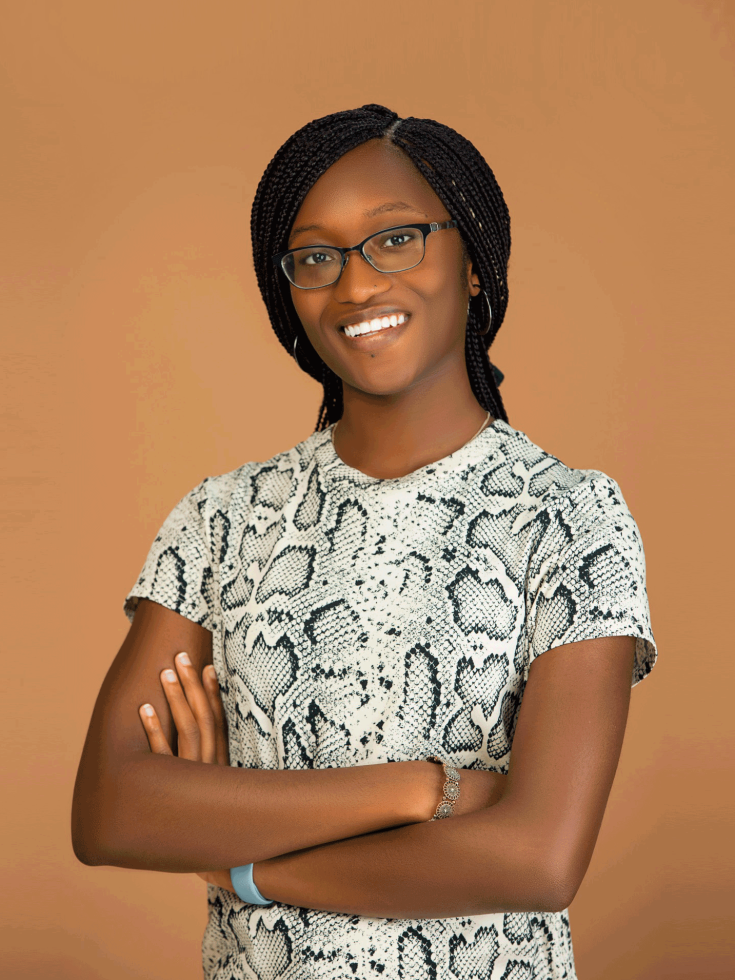"We interviewed people who were upset about the [anticipated] closure," said Ogundare, "That felt new to me. I hadn't heard the narrative about resistance to prison closures before." Students learned that local high school students enrolled in professional programs to become correctional officers because those were the best jobs available. A local grocery store owner feared he would lose his business because the prison was such a significant customer.
"Prisons need to be closed responsibly and ethically without causing harm. The perspectives of everyone involved and directly impacted must be considered," said Ogundare, who contributed policy recommendations to Susanville's city council.
Ogundare enrolled in Eason's seminar a second time during the fall 2023 semester. This time, she and her classmates researched the prison-closure-related issues faced by Blythe, California, a city whose population is predominantly people of color. There, the prison closure was announced with no opportunity for community input. Using her data analytical skills, Ogundare projected how the closure would impact the unemployment rate in Blythe, a process that she said solidified her interest in policy research.
"There's always so much more to learn," said Ogundare, who is currently researching the impacts of wealth and inequality on prison-reliant communities for Watson's new Justice Policy Lab, which Eason leads. "We're researching how those communities consider the opinions of community members, activists and policymakers, and how economies, as well as schools, hospitals and community centers, are affected by prison closures," she said, "What Susanville and Blythe were promised in terms of economic gains [from the prisons] never happened."
Eager to make her research results widely accessible, Ogundare plans to interview three experts in separate podcasts that she anticipates will be released on the Justice Policy Lab website before she graduates in May. The local interviewees are Ella Friday, a postdoctoral research associate at the Watson Institute and Brown’s Center for the Study of Race and Ethnicity in America, who will speak about her research on the narratives of incarcerated women and Brandon Robinson, a community organizer for Open Doors RI and Stop Torture RI. Robinson is advocating for the passage of legislation to reduce solitary confinement in Rhode Island. A third interview is scheduled with Bryan Ziadie who will speak about his engagement with Californians United for a Responsible Budget, a statewide coalition aiming to reduce the number of prisons and incarcerated people in California and shift state spending away from incarceration.
During her time at Brown, Ogundare served as a writer for The Black Star Journal, a fellow for a Community-Based Learning and Research class, an Undergraduate Carceral State Reading Group undergraduate facilitator, and a supplies coordinator with the Brown student-run initiative Housing Opportunities for People Everywhere.
As for her post-graduation plans, Ogundare was awarded a prestigious fellowship from the John Robert Lewis Scholars and Fellows program. Fellowship activities will include trips to Washington, D.C. as well as conversations around social justice with her peers as well as individuals who knew the late Rep. Lewis.
Grounded in her belief that small actions are meaningful, even if they don't have a widespread impact, Ogundare encourages others to "always be grounded by your conscience and passions. If there is injustice anywhere and there is something we can do about it, we should," she said, "Be guided by what you know is right."
Through her Brown experiences, Ogundare said she has learned to always think critically — even about issues she once took for granted — and to solve problems collaboratively. "My instinct and passion to push for justice has only increased during my time at Brown. I'm leaving with a desire to make the world better in all the small ways I can," said Ogundare, who anticipates embarking on a career in civil rights or public defense work.
